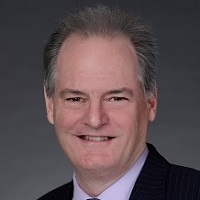The Average Lawyer Is 90% More Skeptical Than Everyone Else: What This Means for Your Clients, Your Colleagues, and Your Firm
A skeptical lawyer is a good lawyer.  He scrutinizes every line in a contract. He questions the opposing party’s arguments. He looks for hidden motives. He looks at the law with a critical eye. His legal decisions are guided by a healthy pessimism, which helps him guard against mistakes.
He scrutinizes every line in a contract. He questions the opposing party’s arguments. He looks for hidden motives. He looks at the law with a critical eye. His legal decisions are guided by a healthy pessimism, which helps him guard against mistakes.
At the same time, a skeptical lawyer is not fun to be around when he is not dealing with legal issues. Because of his cynical, argumentative and judgemental character he doesn’t play well with others. He is less accepting, less trusting, and less willing to give others the benefit of the doubt. He is a discouraging mentor and hard to befriend. As a colleague he is respected but not loved.
As a partner or senior lawyer in a law firm, a skeptical lawyer can fail to inspire. He is trained and prone to focus on what doesn’t work more than on what does. He will point out problems rather than give encouragement. In partner meetings he is disagreeable, shy to take on new initiatives, and distrusting of innovation.
Studies show that the average lawyer is more skeptical than 90% of the norm. Consultant Dr. Larry Richard, J.D., Ph.D. has found that on measures of skepticism as a personality trait, the average lawyer scores in the top 10 percentile. This is an important insight into the lawyer’s mind. The skeptical trait and all of its positive and negative outcomes affects you, your law firm, and the profession as a whole. It is not enough to dismiss a single lawyer here and there as a skeptic. We are all skeptics.
Is it any wonder that lawyers have had a bad rap? The personality trait that best develops our skills is at the same time a horrible trait to have when dealing with people. We have all had the experience in meetings with colleagues, mentors, senior and junior lawyers, of not being heard. We have the same difficulty when dealing with clients – the overarching experience is of getting them to understand our way. A two-way conversation is hard to come by.
Dr. Richard points out that skepticism is a learned trait. It can be managed such that its effect is minimized in a leadership role or when dealing with fellow lawyers in a law firm. But before we dig deeper into how the profession can tackle the issue of the skeptical lawyer, there are a number of other traits that are dominant in lawyers.
This is the first blog post in a series on lawyers’ personality traits, as featured in this LAWPRO magazine article. Can you think of an instance where you have been skeptical? In my next post I will discuss another personality trait found in lawyers – autonomy.
This post is by Ian Hu, Claims Prevention and practicePRO Counsel at LAWPRO.



Interesting post Ian. Skepticism is likely behind some of the more cautious approaches taken by lawyers when it comes to business innovation.
The title of the article should probably be changed though.
90th Percentile means roughly that if you had a room of a hundred people randomly chosen from the population an averaged lawyer would be more skeptical than 89 people in the room and less skeptical than 10 of them (I’m curious as to who those 10 would be and what they do for a living, maybe debt collections and lobbyists?)
90th percentile does not mean that lawyers are 90% more skeptical than others (that would require measuring skepticism as an absolute quantity rather than a comparative quality).
Percentile is usually useful for measuring things like personality traits and intelligence which are hard to quantify, or where the difference in percentile is small/less significant than the relative difference (ex. height, where a man who is 15% taller than average = over 2meters = taller than 99/100 people they encounter and constantly needing to duck their heads to get into buildings and cars.
Good catch James! I did take some artistic licence on that one. Figured a skeptical lawyer with a good eye would take me to task!
Dan,
I don’t doubt your sincerity, but you can’t really get away with using “he” as a gender-neutral pronoun anymore. It’s sexist.
To be clear, I’m not calling you a sexist; more to the point, I’m simply pointing out that you have “sexism in your teeth” (ripped from a ted talk), and offering you a toothpick. Kind regards,
Daniel